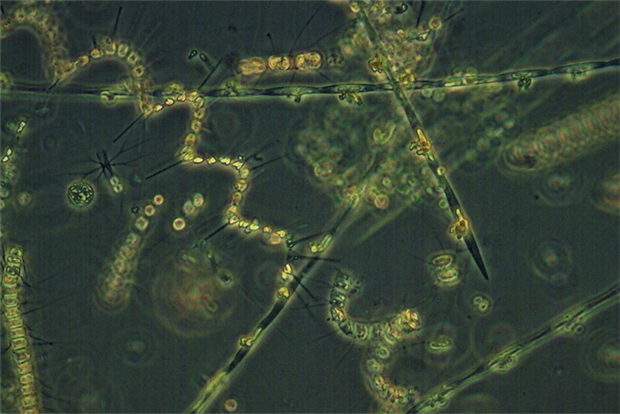One of the planet’s most important carbon sinks is revealing its secrets

Tiny phytoplankton do a huge job in the Southern Ocean. Credit: NOAA

Tiny phytoplankton do a huge job in the Southern Ocean. Credit: NOAA
The Southern Ocean plays a central role in moderating the rate of climate change, absorbing an estimated 40% of the total amount of human-generated carbon dioxide emissions and 60-90% of the excess heat trapped by greenhouse gases in the atmosphere. Understanding how the Southern Ocean absorbs carbon dioxide (CO2) is one of oceanography’s top priorities, but remote, harsh conditions of the Southern Ocean challenge scientists’ ability to accurately characterize how carbon cycles through the ocean and atmosphere.
A new paper authored by scientists from NOAA’s Pacific Marine Environmental Laboratory and the University of Hawai'i at Mānoa provides insights on one of the most important factors in the Southern Oceanic carbon cycle, the “biological pump,” where carbon is used by organisms at the surface and transferred to ocean depths, away from contact with the atmosphere. The paper was published today in the journal PNAS.